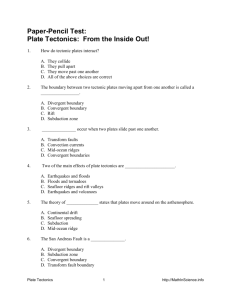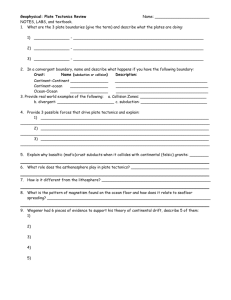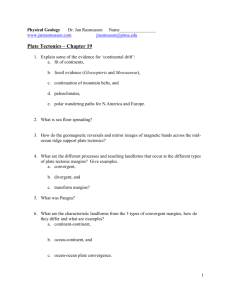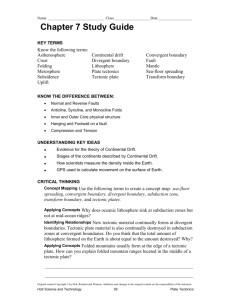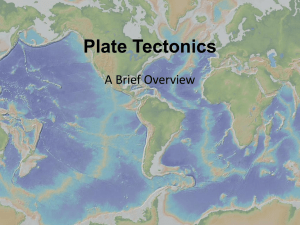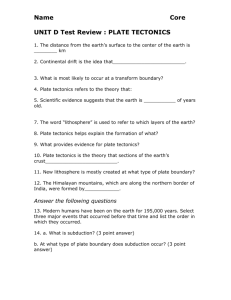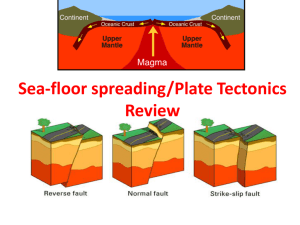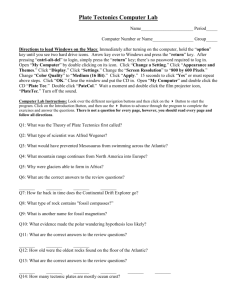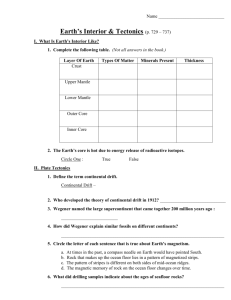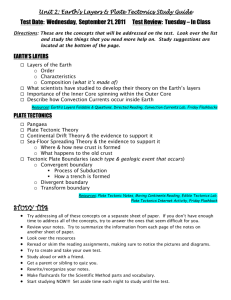Study Guide for Plate Tectonics and the Parts of the Earth
advertisement
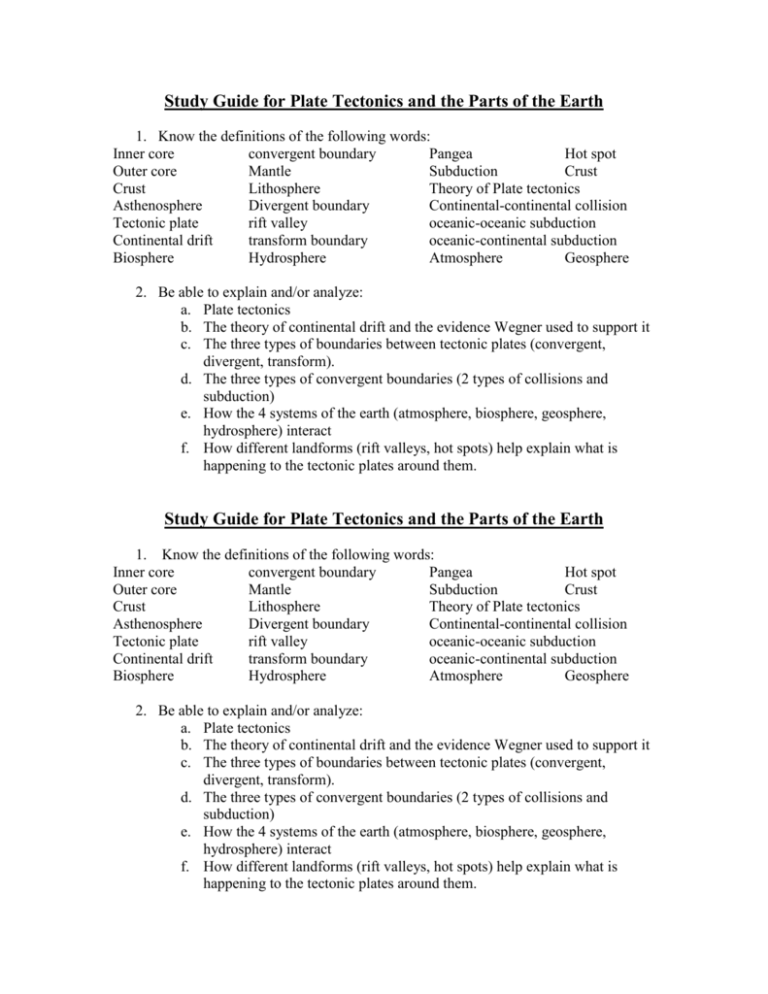
Study Guide for Plate Tectonics and the Parts of the Earth 1. Know the definitions of the following words: Inner core convergent boundary Pangea Hot spot Outer core Mantle Subduction Crust Crust Lithosphere Theory of Plate tectonics Asthenosphere Divergent boundary Continental-continental collision Tectonic plate rift valley oceanic-oceanic subduction Continental drift transform boundary oceanic-continental subduction Biosphere Hydrosphere Atmosphere Geosphere 2. Be able to explain and/or analyze: a. Plate tectonics b. The theory of continental drift and the evidence Wegner used to support it c. The three types of boundaries between tectonic plates (convergent, divergent, transform). d. The three types of convergent boundaries (2 types of collisions and subduction) e. How the 4 systems of the earth (atmosphere, biosphere, geosphere, hydrosphere) interact f. How different landforms (rift valleys, hot spots) help explain what is happening to the tectonic plates around them. Study Guide for Plate Tectonics and the Parts of the Earth 1. Know the definitions of the following words: Inner core convergent boundary Pangea Hot spot Outer core Mantle Subduction Crust Crust Lithosphere Theory of Plate tectonics Asthenosphere Divergent boundary Continental-continental collision Tectonic plate rift valley oceanic-oceanic subduction Continental drift transform boundary oceanic-continental subduction Biosphere Hydrosphere Atmosphere Geosphere 2. Be able to explain and/or analyze: a. Plate tectonics b. The theory of continental drift and the evidence Wegner used to support it c. The three types of boundaries between tectonic plates (convergent, divergent, transform). d. The three types of convergent boundaries (2 types of collisions and subduction) e. How the 4 systems of the earth (atmosphere, biosphere, geosphere, hydrosphere) interact f. How different landforms (rift valleys, hot spots) help explain what is happening to the tectonic plates around them.
